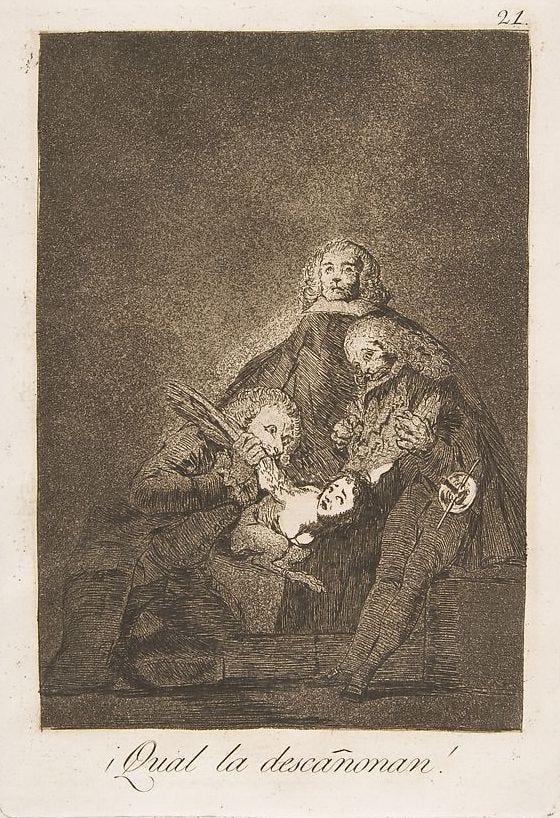
June 30, 2022
In the wake the U.S. Supreme Court’s decision to overturn Roe and end federal protection of abortion, Public Seminar presents a special issue in which feminists, authors, scholars, and activists examine the future of sex, gender, and reproductive rights. As contributor Laura Briggs asks: “What kind of reproductive justice is possible in this new, darker incarnation of the United States, with its misogynist, racist, anti-trans and queer, anti-democratic tendencies on full display, and without constitutionally protected abortion rights?”
“You may be wondering: Don’t we have enough problems just trying to ensure minimal rights to abortion, without trying to also ensure a just economy and human rights for kids, women, and others? But insisting that another world is possible is the point of political activism, and our fight for abortion must articulate what that world looks like. People don’t fall in love with social movements because they open the way to a narrow, limited path to rights. Dreaming bigger and naming what we really want can bring more people into a fight.” In a United States without constitutionally protected abortion rights, feminism must address the precarious life conditions that lead people to need abortions in the first place, writes Laura Briggs.
“In Houston, butch lesbians and trans activists waged a decades-long battle in the 1960s and 1970s to overturn a city ordinance prohibiting people from appearing in public ‘dressed with the designed intent to disguise his or her true sex as that of the opposite sex,’ a misdemeanor offense. Lesbian bar owner Rita Wanstrom, together with a dozen patrons calling themselves the ‘Tumblebugs,’ first challenged the ordinance in 1968 after being repeatedly arrested for wearing fly-front pants.” In responding to Dobbs v. Jackson Women’s Health Organization, reproductive justice activists would do well to look to Texas, Lauren Gutterman suggests: in the Lone Star State, grassroots organizers have persistently recognized how racial and economic inequality, immigration status, and gender and sexual discrimination intersect in the fight for bodily autonomy.
“For gay sex, poppers are a stock item—not compulsory but definitively advised,” writes Samuel Te Kani. The drug has recently been rescheduled as a restricted substance in Australia and New Zealand: the ruling, Te Kani argues, is a part of a larger trend of policing and actively gendering bodies. “The idea that we’re living in a permissive age is inherently flawed if the cultural aspiration towards liberation and authenticity, sexual or otherwise, is steeped in systemic controls, which demand a regimen of performative gestures in exchange for the spoils of emancipation. With access to those spoils becoming increasingly privatized—spoils like abortion, spoils like sexual pleasure and safety—our notional emancipation has no more chutzpah than a job promotion.”
Historian Jennifer Holland joins Claire Potter for a conversation about Holland’s book Tiny You: A Western History of the Anti-Abortion Movement and how fetal politics stole Americans’ reproductive rights. In the 1980s, Holland explains, the anti-abortion movement came up with a new framework: women as victims of abortion. “This is not supported by the American Medical Association and the American Psychiatric Association, which keep saying, ‘No, this is not a common traumatic event.’ But it doesn’t matter. The movement runs with this idea that women are hurt by abortion. Laws are passed with names like ‘Women’s Right to Know,’ or ‘Women’s Protection Act.’ Right? And even the Supreme Court, prior to this one, starts to parrot the movement and say that women are hurt by abortion.”
Interested in this discussion? Help spread the word by sharing with a friend.
At this point in our nation’s history, asking for rights rather is like asking for a spoon to shovel your driveway after a blizzard, Hannah Leffingwell argues. “We need creative, large-scale solutions that put out many small fires all at once and fundamentally change the way our system works. A new effort to pass the Equal Rights Amendment, to cite one example, would constitute a meaningful challenge to the government’s ability to exercise power over people’s bodies. Its ratification would have broad implications for the protection of abortion rights and the protection of queer people from discrimination, as conservatives who opposed it in the 1970s knew.”
In Venezuela, where abortion is illegal, teacher and human rights defender Vannesa Rosales spent three months in jail before being placed on house arrest for helping the mother of a 13-year-old victim of sexual assault acquire abortion pills. In an interview for Public Seminar, Rosales’s lawyer Venus Faddoul talks with Cristina Ciordia about the case and Venezuelan women’s uphill struggle for sexual and reproductive rights. “Women’s rights have never been part of the political agenda, on either side of the aisle,” Faddoul explains: “The advances in other Latin American countries have made it possible to discuss the issues, but when that happens you are often rejected. Even women that are part of political parties take a deep breath when I touch on the subject.”
Thousands of people congregated outside the Supreme Court on June 24 to protest the Court’s decision to overturn Roe v. Wade. Jo Freeman shares an essay in photographs.



